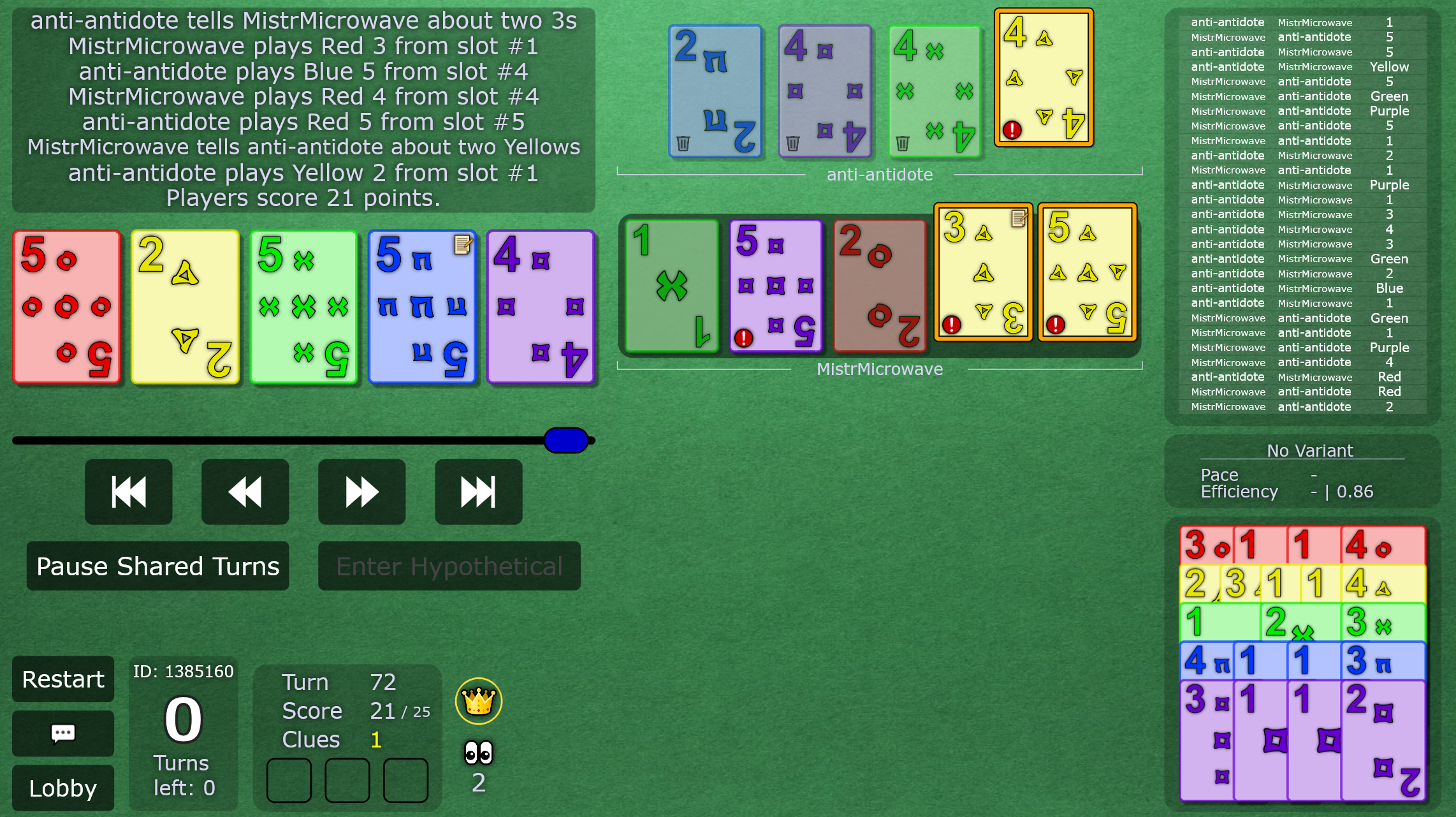You should play Hanabi!
Very rarely do I encounter “new” card games, especially ones that actually make you think instead of relying on a weird gimmick. However, that’s not the case with Hanabi, a sort of multiplayer solitaire game that has been living rent-free in my brain in recent days.
The goal of Hanabi is very simple: successfully place numbered cards for 5 different colors in order from 1 through 5, kind of like Solitaire. Achieving that goal, though, is more complicated than you might think.

The game is played with a deck of 50 cards: three 1’s of each color, two 2’s, 3’s, and 4’s of each color, and one 5 of each color. Remember this, it’s important. When the game starts, you get a hand of a certain size. The more players you have, the fewer cards in your hand. On your turn, you can perform one of three actions: playing a card, discarding a card, or giving a clue.
Playing cards is obviously important, since you have to place cards in order to win. When you play a card, a new card is drawn from the deck and placed at the far left slot in your hand. Doing this immediately probably isn’t the best idea though, since you can only see other player’s cards, not your own, so you would be playing blind. If you misplay a card (e.g. by trying to play a green 4 on top of a green 2), that card gets discarded and you get a strike; three strikes and the game is over.
Thankfully, you can help your fellow players out by giving one of them clues about what cards they have in their hand. Since you can see their hands, you can make judgements on which cards might or might not be important. Be careful though, as your choice of clue could be devastating: if someone accidentally discards both of a certain middle card (or God forbid, a 5), you can no longer get full points since you can’t complete that color.
When you give clues, you’re telling one player which of their cards are a certain color or a certain number. You can’t do both, at least not in the same turn, meaning unless a card gets hit by both a color clue and a number clue you’re working with incomplete information. Giving clues is definitely a skill.
Interpreting clues is the other half of this game’s equation. Since you’re not allowed to communicate about the values of cards or intents of clues, you have to guess whether a given clue means “you should play this card”, “this card is important for later”, or “these are trash and you can get rid of them”. Misinterpret a clue and you could lose the game. Clues also allow you to know what a card isn’t, which can sometimes be just as valuable as knowing what it is.
Something else to consider is that you only have a limited number of clues. All players share a pool of 8 clues; run out of clues and you can’t share information anymore. Thankfully, you can discard cards to get clues back. Each discarded card nets you one clue. Unfortunately, you also can’t discard cards if you have too many clues. This means that as a team you have to manage the economy of clues and discards; lean too hard on one or the other and you could cause your team to misplay or discard important cards.
The game is over when:
- All possible cards have been successfully played,
- The team gets three strikes, or
- The team runs out of cards in the deck.
Hanabi is a great game. Go play it!
I like building tools, breaking workflows, and putting them back together better. If you enjoy my work and want to support it, you can buy me a coffee ☕ or support me on Liberapay 💛.